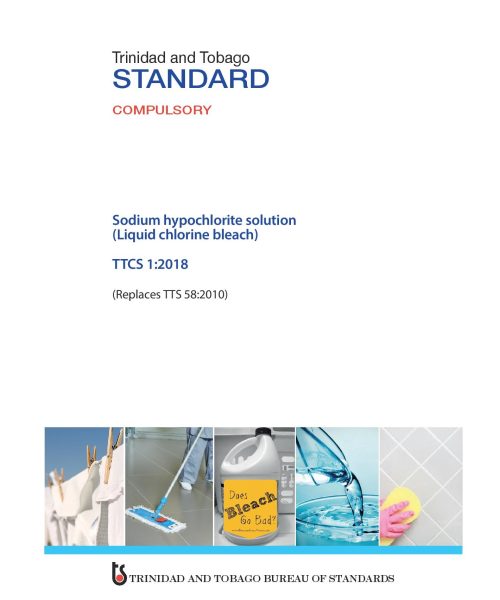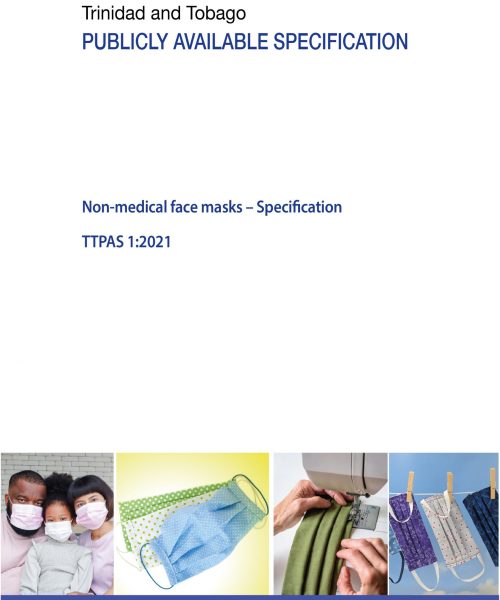TT Standards Store
Standards are in secured PDF format. Copying, printing or redistribution is strictly prohibited.
Showing 1–16 of 123 resultsSorted by popularity
-

TTCS 2:2020, Concrete Masonry Units – Compulsory Requirements
$0.00 Add to cart -

TTCS 8:2021, Steel Bars For Concrete Reinforcement – Compulsory Requirements
$0.00 Add to cart -

TTCS 7:2020, Laundry Detergents – Compulsory Requirements
$0.00 Add to cart -

TTCS 24:2023, ELECTRICAL APPLIANCES – COMPULSORY REQUIREMENTS
$0.00 Add to cart -

TTCS 19:2023 – LABELLING OF GOODS – GENERAL – COMPULSORY REQUIREMENTS
$0.00 Add to cart -

TTCS 10:2021, Garments and Textiles – Compulsory Requirements
$0.00 Add to cart -

TTCS 4:2020, Rolled Structural Steel Products – Bars, Plates, Shapes and Sheet Piling – Compulsory Requirements
$0.00 Add to cart -

TTS 599:2006, Guide to the Design and Construction of Small Buildings
$280.00 Add to cart -

TTCS 1:2018, Sodium Hypochlorite Solution (Liquid Chlorine Bleach) – Compulsory Requirements
$0.00 Add to cart -

TTCS 20:2023 – LABELLING OF GOODS – PREPACKAGED GOODS – COMPULSORY REQUIREMENTS
$0.00 Add to cart -

TTCS 21:2023 – GENERAL PURPOSE CLEANING, BLEACHING AND DISINFECTING PRODUCTS – COMPULSORY REQUIREMENTS
$0.00 Add to cart -

TTCS 3:2020, Safety of Toys – Compulsory Requirements
$0.00 Add to cart -

TTCS 16:2023, READY-MIXED CONCRETE – COMPULSORY REQUIREMENTS
$0.00 Add to cart -

TTCS 11:2021, Energy Labelling – Compact Fluorescent Lamps and Light Emitting Diode Lamps – Compulsory Requirements
$0.00 Add to cart -

TTCS 9:2023 – BIODEGRADABLE MATERIALS – FOOD-CONTACT SINGLE-USE PRODUCTS FOR COMPOSTING IN MUNICIPAL OR INDUSTRIAL FACILITIES – COMPULSORY REQUIREMENTS
$0.00 Add to cart -

TTPAS 1:2021, Non-Medical Face Masks – Specification
$0.00 Add to cart

